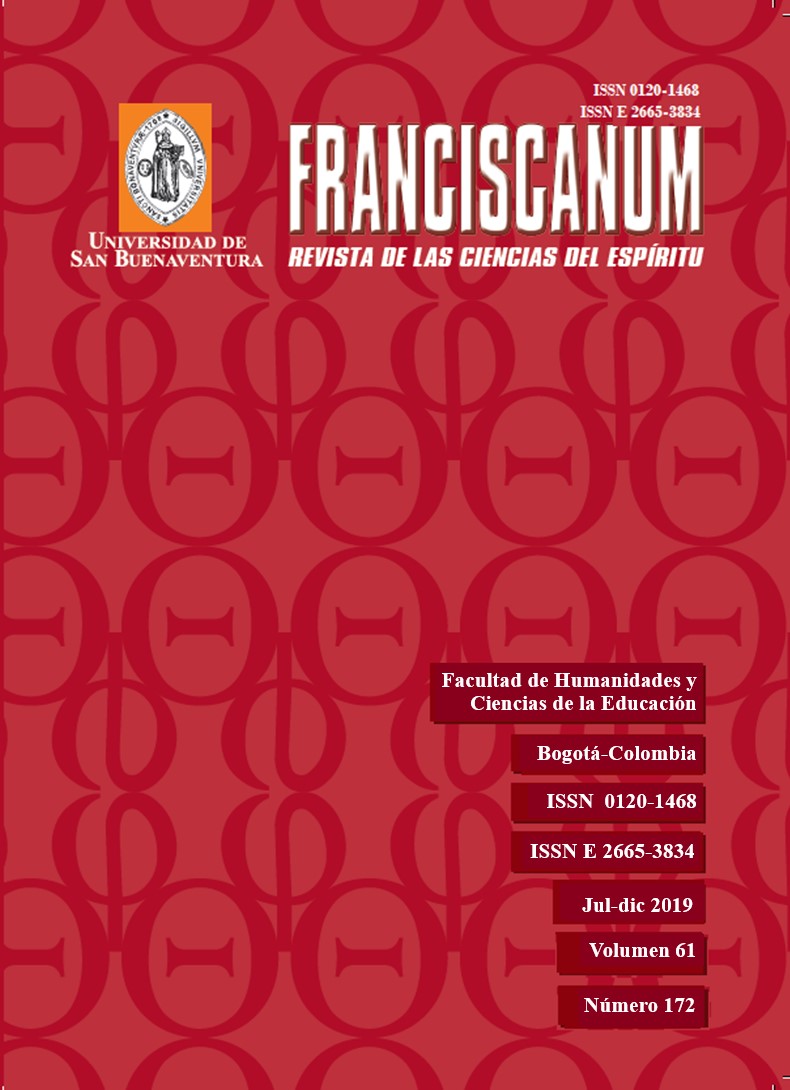This journal provides immediate open access to its content, based on the principle that giving the public free access to research helps a greater global exchange of knowledge.
Therefore, the Creative Commons 4.0 Attribution Attribution - Equal Share (by-sa) License is accepted: The commercial use of the work and the possible derived works is permitted, the distribution of which must be done with a license equal to that regulates the original work.
http://creativecommons.org/licenses/by-sa/4.0/
Along these same lines and in line with the Open Access policy, it is clarified that the authors maintain their rights to articles, without restrictions and, in the same way, they maintain their publication rights, without restrictions. They are only asked to reference the number of the Franciscanum magazine where the article initially appeared.
Abstract
In this article, I analyze the position of Madame de Staël on the pursuit of happiness, the treatment of passions and the role of compassion, three central themes in Schopenhauer, but with which she articulates a different path to the denial of the will and the mere affirmation of the will. Madame de Staël interpreted compassion, that feminine passion par excellence in Schopenhauer, also in a broader way and in which ethics and politics combine in relation to the art of living instead of denying the will.



















